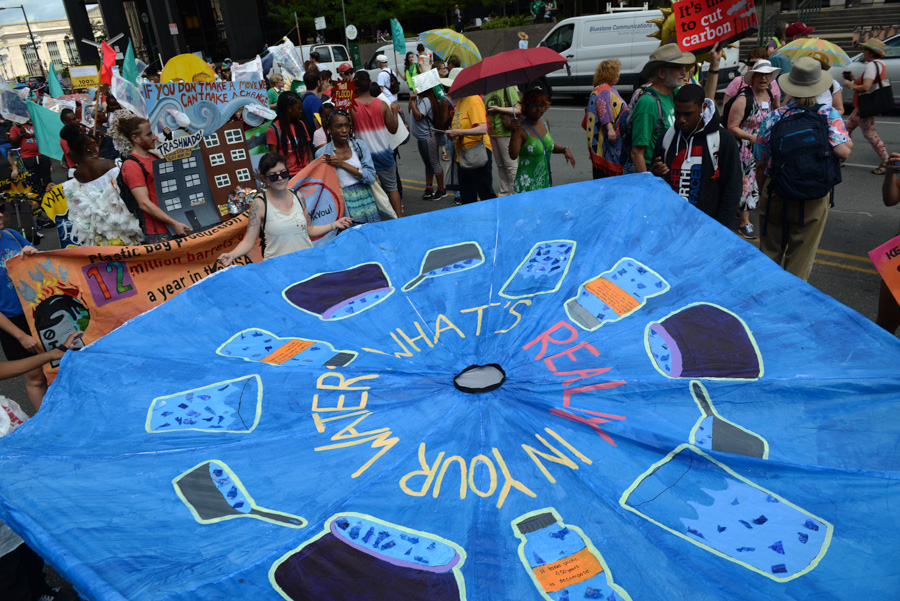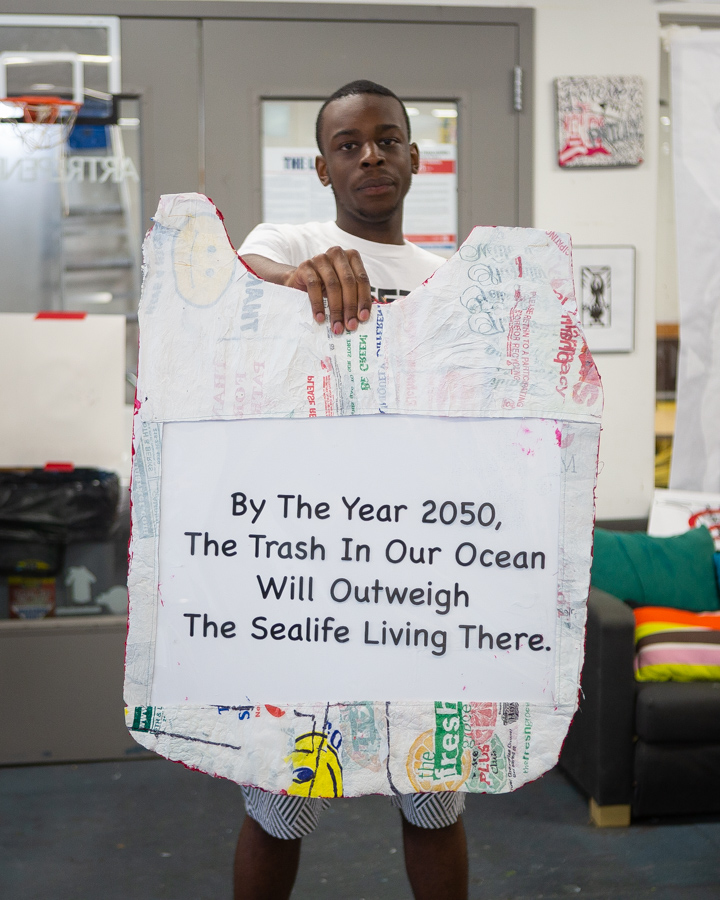Plastic bag Campaign
Trash Academy, in collaboration with Clean Water Action and the city of Philadelphia’s Zero Waste and Litter Cabinet, initiated a campaign to reduce the number of plastic bags in our streets and in our waste stream. To support action on this issue, Trash Academy helped to form a diverse coalition of grassroots organizations, non-profits, block captains, and neighbors, while CWA worked with environmental organizations, businesses and government. Trash Academy participants developed artistic interventions in multiple artistic media to work with and reach residents, creating graphics, posters, banners, a website and costumes that were used by coalition members to amplify their work for the protection of our city’s health and environment.
our VALUES
Single use plastic bags represent a culture of waste and overconsumption that damages the health of humans and our planet. Reusable bags are a common sense alternative -- choosing them over plastic can foster a culture of sustainability and care, for our environment and for our communities. Trash Academy youth, community members, activists, experts and artists researched and developed campaign artwork to tell this story and build awareness.
THE IMPACT OF PLASTIC
LITTER
In Philadelphia, the blight of litter persists in too many of our communities. Low income communities are disproportionately affected by the blight of trash and litter. Neighborhoods with high levels of litter tend to have higher crime rates and lower property values. It is estimated that Philadelphians use around one billion plastic bags per year. Our city’s litter problem could improve dramatically if we choose reusable bags over plastic.
ECONOMIC IMPACT
Consumers are already paying a price for plastic bags. Bags seem free, but they are actually factored into our bill at checkout. The removal of plastic bag pollution from our streets cost taxpayers around 18 cents per bag. Our taxes also pay for the Street Department’s work cleaning up plastic pollution from vacant lots. The Streets Department spends $619 per ton of garbage on vacant lot clean ups, much of which is single use plastics.
Businesses, government, and concerned community members are spending large sums to remove litter from our streets and waterways. Let’s help Philadelphia’s economy by removing plastic bags from our waste stream.
HEALTH
Single use plastic bags are made from low-density polyethylene. As this material breaks down, it releases chemicals into our environment. As plastics break down and enter our waters and food systems they can contribute to health issues such as obesity, reduced sperm counts, and increased rates of breast, ovarian, testicular, and prostate cancers. Carcinogenic particles are also released when plastic bags are burned in waste incinerators.
Litter has negative effects on the mental health of people living near polluted vacant lots. Greening vacant lots and removing trash and litter has been proven to reduce depression and feelings of hopelessness, especially in low income communities. Our public health depends on our reduction of plastic bag use.
ENVIRONMENT
91% of plastics are not recycled. The majority end up in landfills, in our streets, rivers, streams, and oceans. Plastic pollution harms our mental and physical health and poses a grave danger to wildlife as well. Animals often mistake plastics for food, which can cause them to die slow and painful deaths from starvation and/or infection.
It’s not just in their disposal, but also in their creation that plastic bags cause harm. Plastic bags production uses around 12 million barrels of oil per year in the United States, contributing to both environmental pollution and global warming.









